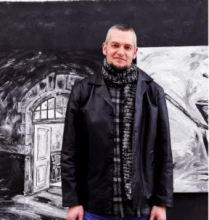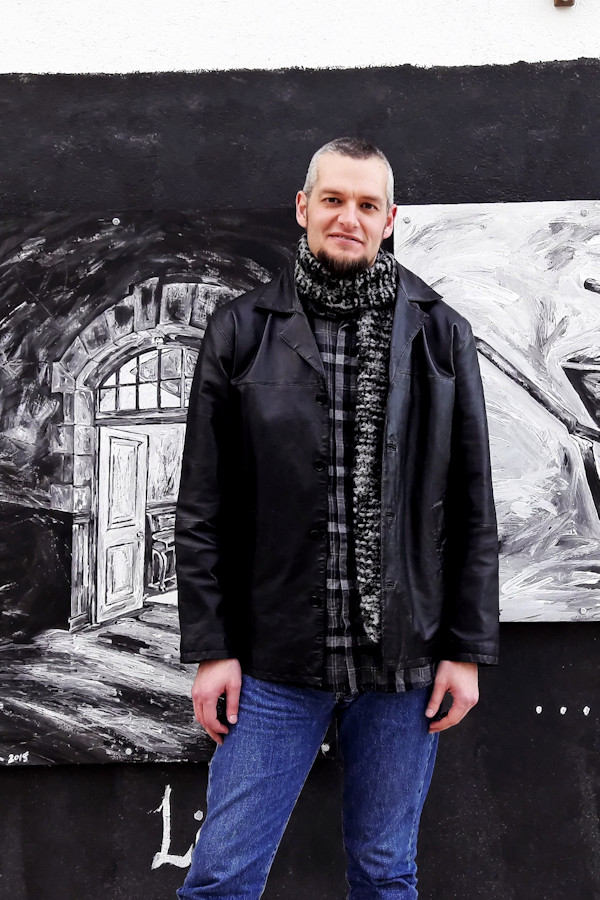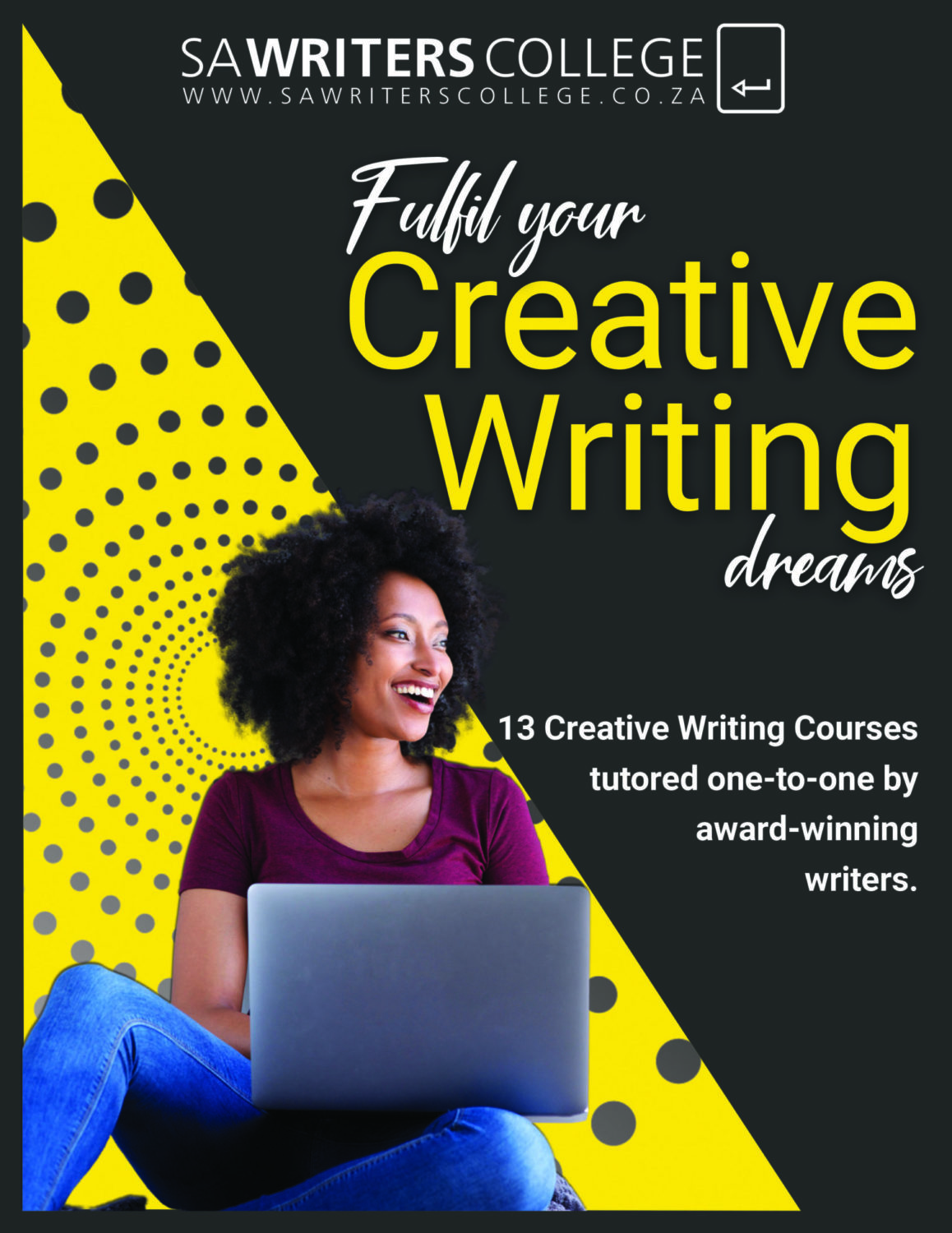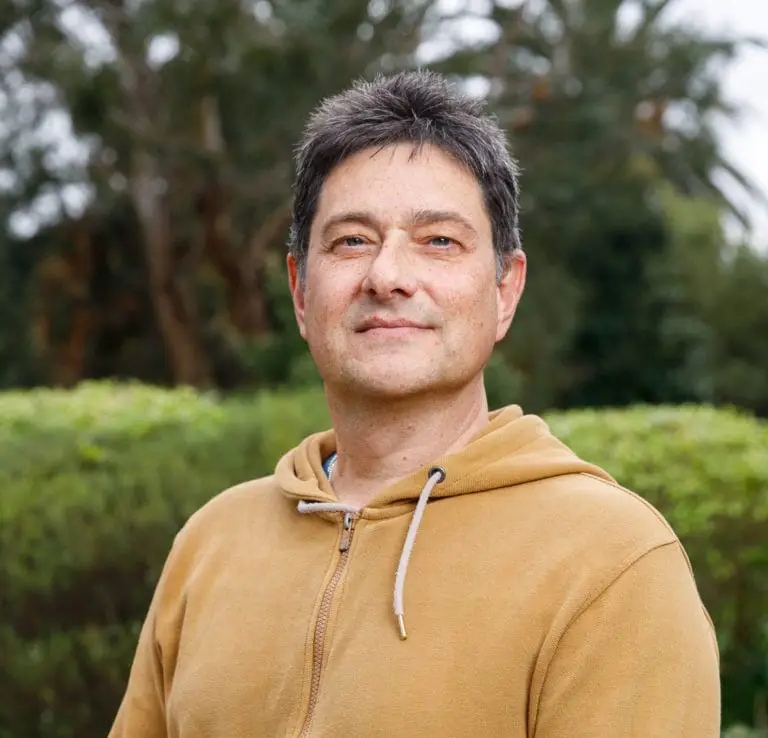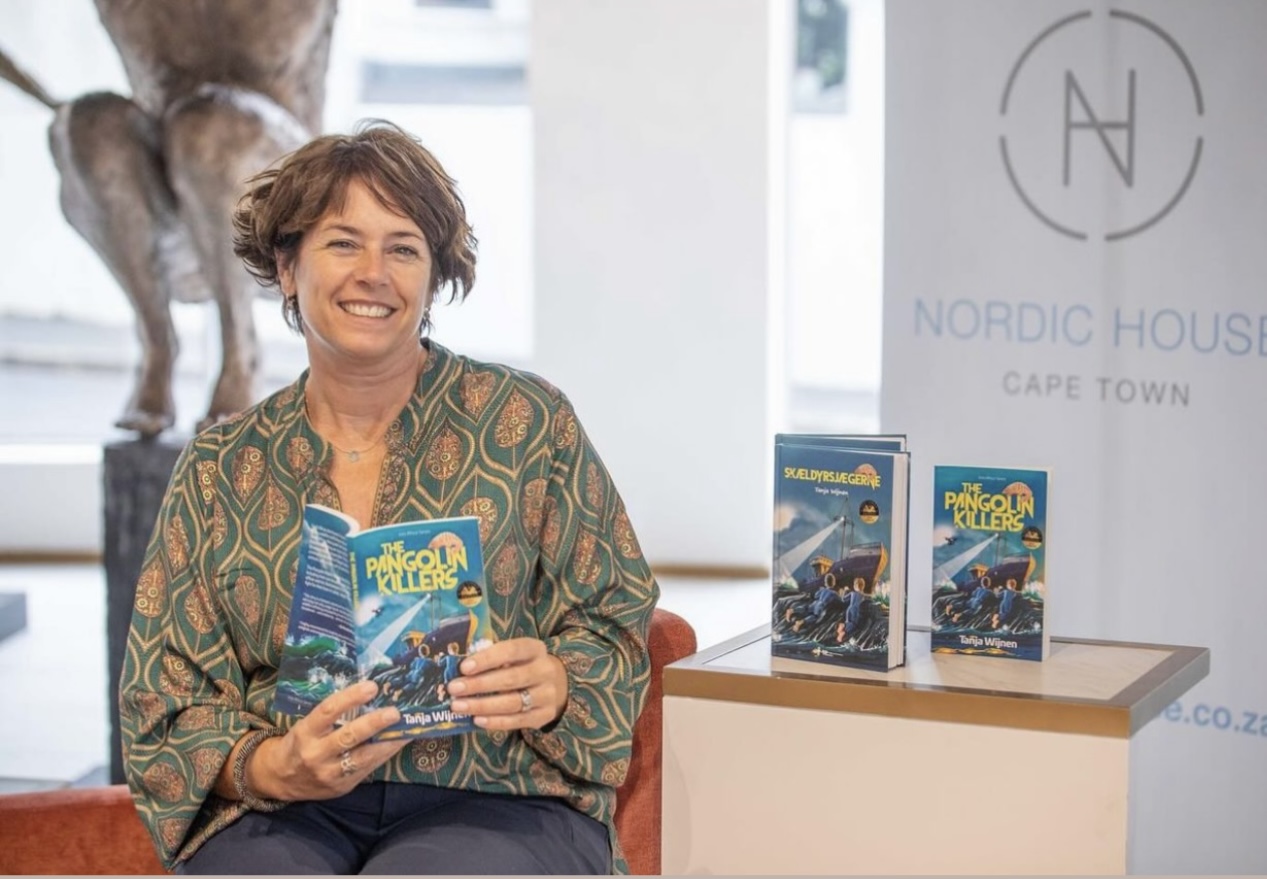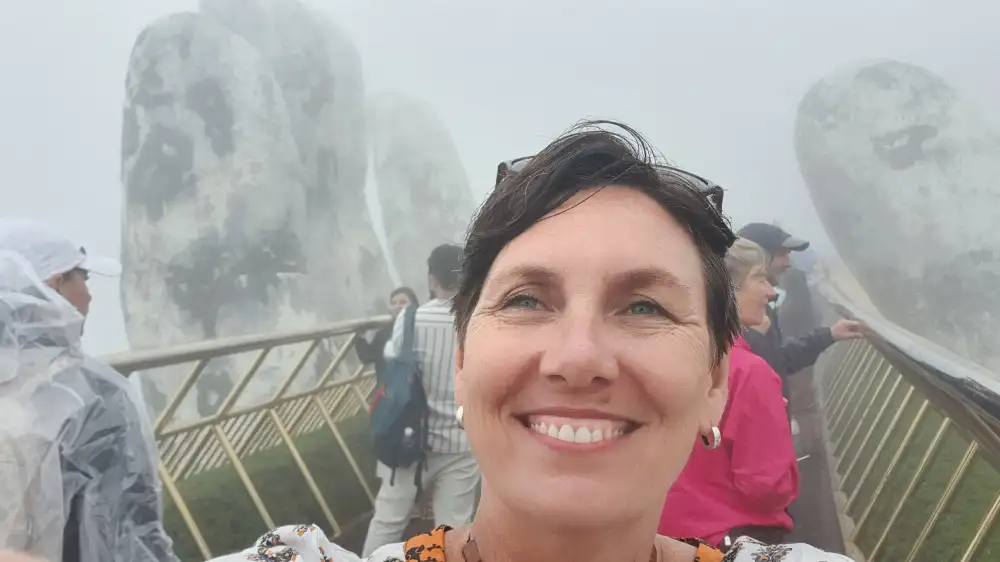The dark side of human nature holds a certain allure for acclaimed crime fiction author, Martin Steyn. He completed the Skryf ’n Roman (Write a Novel) course with the SA Writers College in 2010. Four years later, his debut novel, Donker Spoor, was released to critical and commercial success. Since then he has written two more novels, with his fourth one due for publication in October 2018.
We checked in with Martin to hear more about his experiences as a novelist.
You’ve been quite busy these past few years. What are your writing accomplishments thus far?
My greatest accomplishment, and the one dearest to my heart, remains the moment when my first manuscript, Donker Spoor, was accepted for publication by LAPA Uitgewers. This was the one I had written during the Write a Novel course, and it had taken many years and several manuscripts killed in action to receive that message. It was the fulfilment of a dream I’ve nurtured since high school. Donker Spoor was also the manuscript I had spent the most time and effort on and worked the hardest to improve, so it was an immensely satisfying moment when all of that finally paid off.
I am fortunate that Donker Spoor was well received by critics and readers. It won the Afrikaans Language and Culture Association’s (ATKV) Woordveertjie award for Suspense Fiction in 2015, and was reprinted last year.
Of course, once you become a published author, it makes continuing publishing much easier, but it’s by no means a guarantee. I still do extensive rewriting after I submit my first draft to my publisher. Consequently, each book is an accomplishment and the result of hard work.
Two books followed Donker Spoor: firstly Skuldig in 2015 (which went on to win the ATKV Woordveertjie in 2016) and Swartval in 2016. The new one is currently in the editing process and is coming out in October.
The opportunity arose for an English version of Donker Spoor, so I translated it and it was published locally last year as Dark Traces. It is also available in the United States via Catalyst Press.
I’ll always have a special place in my heart for short stories, because that was how I started writing, and why I fell hopelessly in love with it. I’ve been fortunate that several of my stories have been published in collections and magazines these past few years. I’m particularly pleased with the ones that have been included in the annual collections that the University of Stellenbosch publishes in conjunction with the Woordfees literary and art festival. The selection process is strictly anonymous, so it’s all about the story.
In what way(s) did the course change how you approached the novel writing process?
My tutor was Wilna Adriaanse and she was fantastic. This is the magic of the SA Writers College writing courses. You have a tutor who deals with you personally and who reads your work as you write. This makes all the difference. Because now you can attend to problem areas and implement suggestions as the story develops, almost in real time, instead of doing so after spending months to complete an entire manuscript.
In my case, after I sent my first scene, Wilna immediately remarked that she wasn’t sure from whose perspective the story was being told. I had always employed an omniscient narrator (unless it was a first person story), but this made me think and it was the first step towards coming down to my main character’s level. Instead of telling the story of a police investigation into a series of murders, it would eventually evolve into this detective’s story, where the reader lives the investigation through him. This did not happen overnight; in fact, it took me three drafts to finally get it right. But this has completely changed the way I tell a story. Donker Spoor/Dark Traces is Mags’s story. Skuldig is Menck’s story. Swartval is Claire’s story. Each book is written entirely from that character’s point of view. Of course, there are disadvantages to this approach, but it makes for a much more personal story. In the forthcoming novel there are two main characters (because the story required it), but each scene is experienced through a single perspective.
There were a number of smaller things, one being not to overindulge my fascination with forensic details. For me, the shift in focus to the main character and making it his story proved crucial. One of my enduring criticisms whenever I submitted a manuscript was characterisation. Even after I completed the course, it still took a lot of work to get that element right. This is why it was so satisfying when one reviewer remarked, ‘Steyn’s characterisation is exceptional’ (Johan Smith, in Rapport).
Ultimately, you have to do the work yourself, but you need someone to help mould you, taking off the rough edges, adding some depth, and I found that in Wilna. And that’s another aspect of the Writers College course that I appreciated, that it’s not just a short course. The sustained support of your tutor is important.
You studied psychology and criminology in university, and now you’re a crime fiction author with what you’ve referred to as a ‘questionable fascination with serial killers’… What is it that draws you to the darker side of the human psyche?
Since childhood I’ve been drawn to darker things like horror movies. I don’t know why. Although, when I shaved my head as research for my third novel, I discovered a dent at the back of my skull that I have no recollection of…
What piqued my interest in serial killers in particular was the fact that these men, who looked just like the neighbour, the man in the queue at Checkers, hunted other humans for no apparent reason other than the pleasure of it. They had no prior relationship with their victims, nor did they kill as part of another crime (like a robbery) in order to eliminate a witness. I wanted to know why these men derived pleasure from torturing and killing strangers. So I began reading true crime and found profiling particularly fascinating. And this was a large part of the reason why I became interested in psychology.
But as to why this fascinates me, I don’t know. I don’t even kill flies.
What has been the most challenging aspect of novel writing? How have you overcome this challenge?
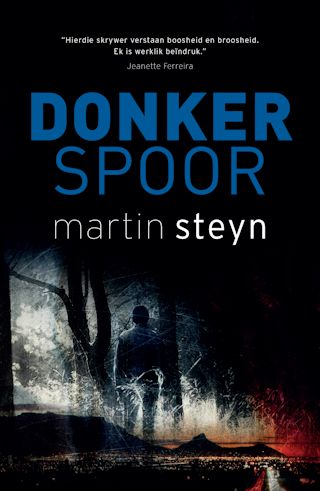 From the start, my goal was to be published. I didn’t just want to write, I wanted my stories to be published. And as mentioned above, the major criticism always involved characterisation. In the end it was about listening to criticism and advice, exploiting my psychology studies, spending time just thinking about a particular character, and continuing to work on it.
From the start, my goal was to be published. I didn’t just want to write, I wanted my stories to be published. And as mentioned above, the major criticism always involved characterisation. In the end it was about listening to criticism and advice, exploiting my psychology studies, spending time just thinking about a particular character, and continuing to work on it.
Obviously, you need some degree of writing talent, but I believe there are two other crucial factors in getting published.
Firstly, you need to change your attitude towards criticism and grab it with both hands. Motivated criticism from a trusted/knowledgeable source, however deep it cuts, is a precious gift. If no one tells you what’s wrong, how can you improve?
Secondly, don’t give up. You can’t get published if you give up. The vast majority of successful writers have a trail of dead manuscripts behind them.
Unlike my previous manuscripts, I kept working on Donker Spoor. This resulted in much frustration, depression, and ultimately, the best moment of my life. Donker Spoor was rejected three times before LAPA accepted it. Today it’s a critically-acclaimed, prize-winning novel, none of which would have happened without those rejections and criticism. That’s because each time I went back to work on the manuscript, armed with new insight, it got better and stronger.
Find out more about Martin and his books on his website. For more news on Martin and his upcoming projects, follow him on Facebook, Twitter, Instagram and Youtube.

